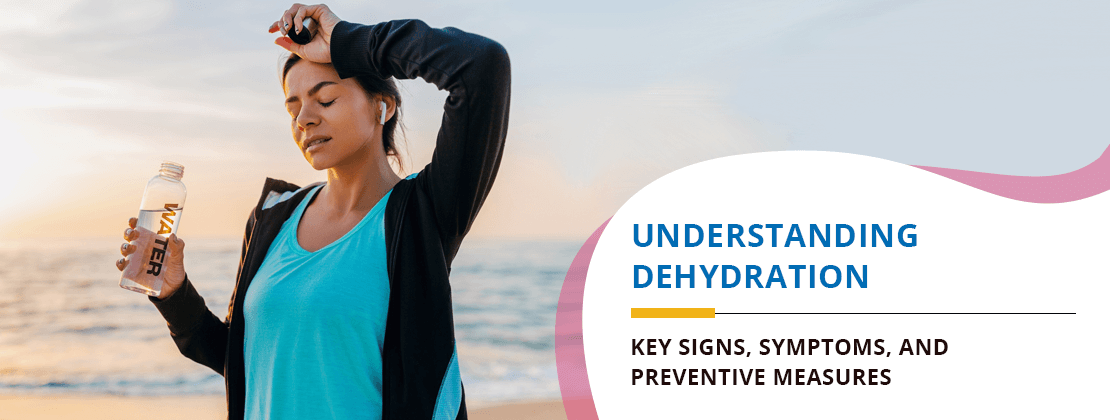
Home / Blog / Understanding Dehydration: Key Signs, Symptoms, and Preventive Measures
Dehydration refers to the condition where the fluid balance of the body is hampered due to various reasons. Since water constitutes about 60% of the human body, keeping it adequately hydrated is critical for it to carry out various functions.
It is important to drink enough fluids since failure to do so may lead to complex health issues.
Read this article till the end to understand the key aspects of dehydration, including its causes, signs and symptoms, and prevention, and also learn what you should do when you have dehydration.
Dehydration is when the body lacks enough water and other fluids for normal operation.
Water constitutes approximately 60% of the total body weight, and the slightest deficit may affect the body’s function normally.
Depending on the volume loss and non-replacement of the body fluid, dehydration can be mild or severe.
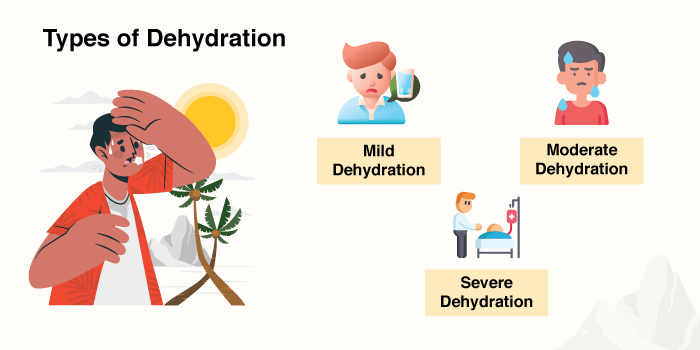
Dehydration has different effects on the body, which can be seen as well as noticed in the form of some behavioural changes.
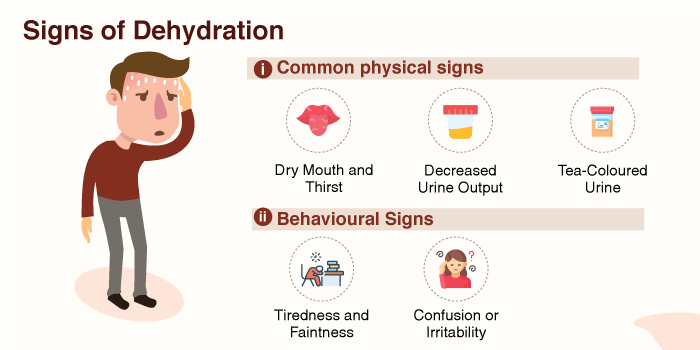
Symptoms of dehydration may be slight or serious, depending on the severity of fluid loss
Children and older adults are more prone to dehydration, as their bodies have a reduced ability to conserve water.
Children lose fluids more quickly because of their higher metabolic rates and smaller bodies. Older adults, on the other hand, may not feel thirst as intensely, causing them to be dehydrated more readily.
People who engage in strenuous physical activity or exercise in hot conditions also have a higher risk due to excessive sweating.
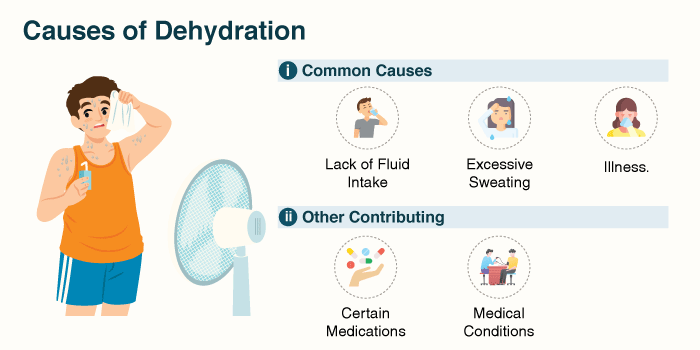
Both internal and external factors can be the causes of dehydration.
Failure to treat dehydration may result in various problems. Temporarily, one might get headaches, dizziness or feel weak. Prolonged dehydration could lead to serious ailments like renal calculi and pyelonephritis, as well as renal failure.
Dehydration may also cause electrolyte imbalances leading to seizures or hypovolemic shock, which is an emergency condition characterised by low blood volume.
Therefore, symptoms of dehydration must be attended to promptly, particularly among high-risk groups like children, elderly persons, and those with existing medical problems.
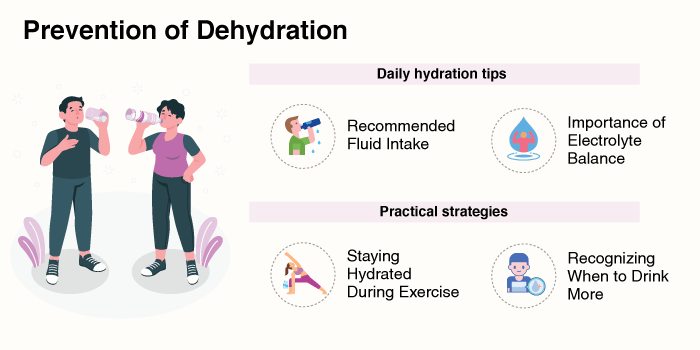
Prevention of dehydration is not difficult if one drinks appropriately every day.
Dehydration is a common condition that can be avoided and affects everyone. Paying attention to signs, symptoms, and causes of dehydration will help keep you hydrated.
Prioritise hydration every day for your health and wellness.
If you think you suffer from severe dehydration, seek medical attention from a general medicine specialist at HCG Hospitals for proper medical attention and care.
Dry mouth, reduced urine output, and light-coloured urine are early signs and symptoms noticed by oneself.
Dehydration is most common among children and older adults, as well as those who engage in sports or physical activities regularly. It is also a risk faced by individuals under medication or who have certain medical conditions that lead to increased loss of body fluids.
It is generally advised that you drink between eight and ten glasses of water (1.8 – 2 litres) daily. However, this may change depending on your activities and the weather.
Certainly, excessive water consumption may cause a serious electrolyte imbalance. One should ensure that the electrolyte levels are proportionate to the water consumed.
Drink extra water, take a bottle of water, and eat water-based foods such as fruits and vegetables.
Children are at a greater risk of dehydration than adults because they lose fluids faster, especially when they are sick or engaging in physical exercises.
Yes, not treating severe dehydration can lead to renal complications, fits, or fatalities.
Indeed, dehydration is identified as one of the biggest causes of headaches and migraine pain. Staying adequately hydrated may help prevent headaches or migraines.
Sodium and potassium are electrolytes that keep the body hydrated. Electrolytes are important for muscles and other body activities.
Consume water and, if needed, a drink with electrolytes such as an isotonic solution. Consuming watery edibles like watermelons and cucumbers may be beneficial too.